Whether you’re a curious party window shopping for pop culture from the bad old days, or you’re as old as the highest mountain’s peak and remember the 2000s personally, you have to admit that it was a weird time for cinema. The highschool-age Spider-Man of the era looked 38 years old, and we were only just beginning to pick up on the fact that The Matrix wasn’t going to be the franchise that defined a generation. Most of the X-Men movies still fit in one timeline. We had, at our absolute most out-of-control, six Star Wars films to keep track of. It all seems so alien now.
But times change, and looking back all these years later, we can agree that brand recognition will always win out over the quality of the first pass. Here’s a thoughtful consideration of a few bad movies — the stinkers dropped by post-9/11 Hollywood, and the potential that they still could contain.
Van Helsing
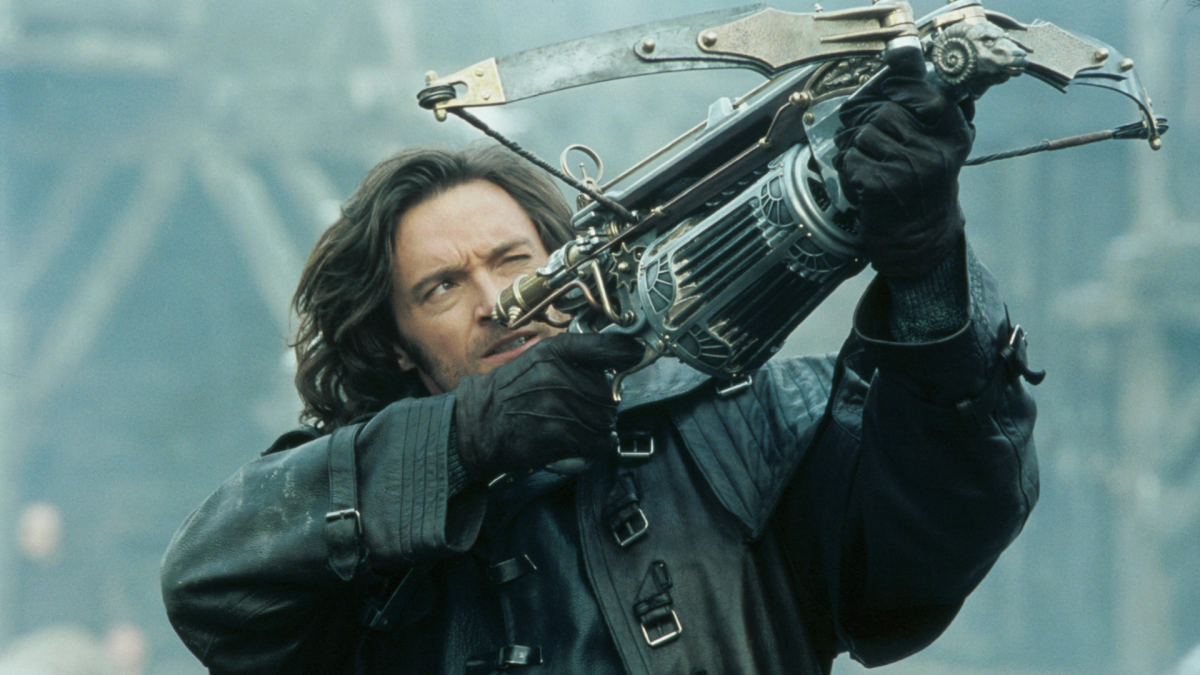
It is borderline astounding, revisiting Universal’s multitudinous swings at creating a shared universe, knowing with the benefit of hindsight that they’ll all end in a studio-wide bed wetting. 2017’s The Mummy was supposed to kick things off. So was Dracula Untold in 2014. And before all of that – before Avengers envy even existed – there was the biggest, wettest bed of them all: Van Helsing.
Almost 20 years later, it’s hard to sit through Van Helsing without feeling like a dance mom, just offstage, watching her little bundle of potential totally biff the recital. You can see everything that the filmmakers wanted to do, and that they chose all the right ideas to steal from other movies. From the steampunk James Bond Q Branch of religious studies where monks construct Chekhov’s sun grenades in the first act, to the way they took advantage of the era-specific, post-Underworld understanding that putting Kate Beckinsale in leather yoga pants was the same as writing her a character, it could have been the most successful amalgamation of crowd-pleasing hackery to hit theaters in 2004.
Instead, we got a half-hour-too-long exploration of that weird, confused, 8th grade, PG-13 horniness that popped up so often in the 2000s, where everybody’s three inches from each other’s faces and breathing out of their mouths, but nobody seems sure what to do next. The action scenes, which frequently bamboozle the audience with their ability to make monster fights boring, are uninspired Shrek 2-looking beat-em-ups that uniformly last 30% too long. With an interesting action director, functioning special effects, and a contemporary, less pointlessly window-fogging script, a $150 million movie about a guy hunting the Universal stable of classic movie monsters could rule. They could even get Jackman back, Logan-style, to try and redeem the performance, maybe going so far as forcing him to commit to an accent before shooting starts this time.
(UPDATE: I just found out that the guy who directed The Pope’s Exorcist is making a Van Helsing remake, which is perfect since he already has experience directing an Australian actor who can’t pick a dialect.)
The League of Extraordinary Gentlemen
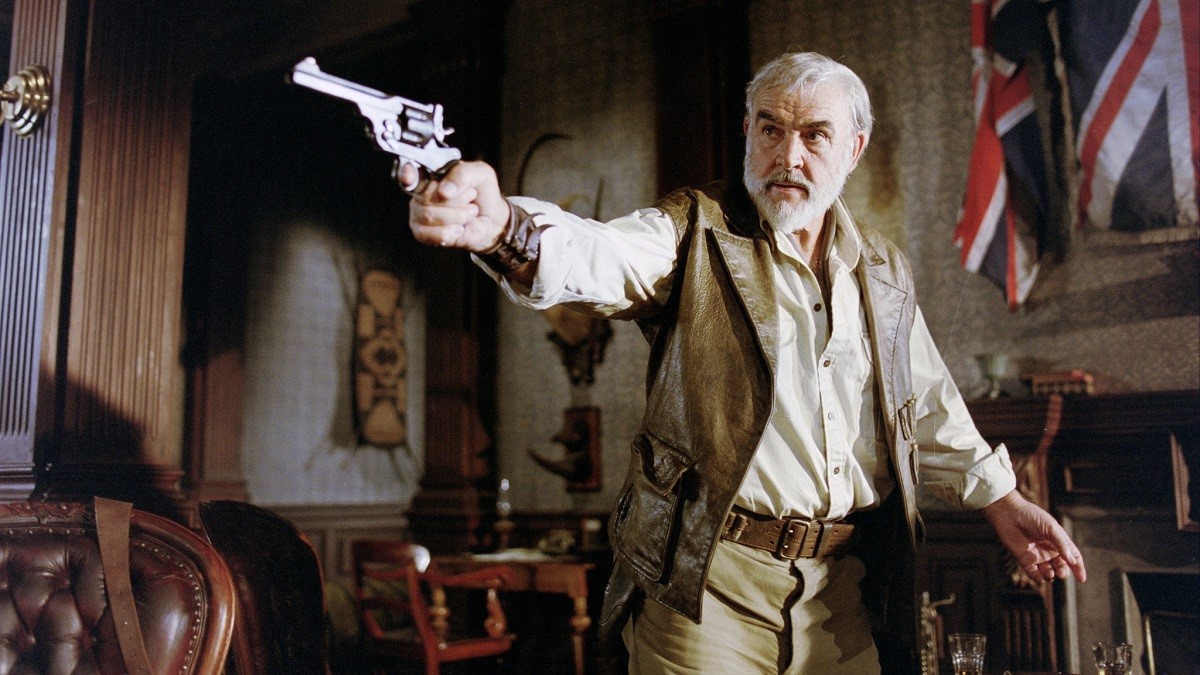
Yeah, we know Alan Moore isn’t going to like it. Alan Moore doesn’t like anything. If you brought Alan Moore a box of Krispy Kremes he’d probably call them “derivative” and have a story about how a donut tricked him out of the money he was owed for his work on The Ballad of Halo Jones.
But time marches on, and franchise rights wait for no man. 2003’s The League of Extraordinary Gentlemen, befuddlingly shortened to “LXG,” pretty famously SUX. It sanded down the source material’s rough edges, which was fair, in theory – in the comics, Allan Quatermain was an opium addict, and by the end of volume two, the Invisible Man had died from being severely made love to by Mister Hyde, which is, if nothing else, a tough Funko Pop to market. It falls apart a little when they take someone like Nemo and make him an honorable swordsman who refuses to wield a firearm, when the comic-accurate, crowd-pleasing option was right there in front of them: Giving him a mini-gun loaded with harpoons and having him mow down rooms full of goons, screaming “Tell the gods that Nemo sent you!”
Basically, the next studio to go nuts with The League of Extraordinary Gentlemen needs to learn what the MCU somehow unlearned post-Endgame: That it’s okay to trust the comics. There’s a truly great story to film here – maybe even one good enough to finally get Alan Moore’s approval.
I’m kidding. That last part will never happen. Make a good League movie anyway, Hollywood.
Eragon
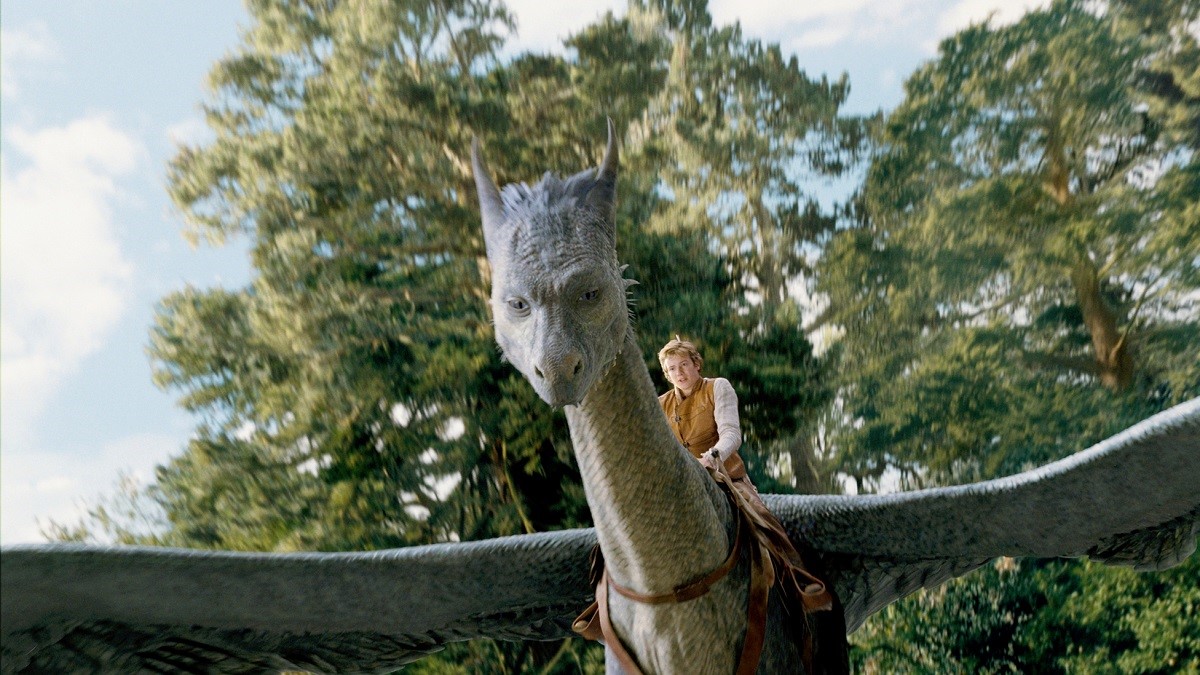
I loved going to the movies as a kid. That’s nothing special, most kids love movies, but I lived for them. For the majority of my adolescence, every dollar that I got my hands on went directly to AMC. My standards were desperately low. I was a forgiving idiot of an audience member. A scheduling accident once led to me seeing Fantastic Four 2 twice in one afternoon, and I wasn’t even that mad about it.
All of which is to say that Eragon was the first movie I genuinely considered walking out of. That 20th Century Fox couldn’t pull a watchable flick out of Christopher Paolini’s Eragon is, even 17 years later, just every flavor of baffling. At its core, the book is a paint-by-numbers hero’s journey, playing Joseph Campbell’s monomyth like it’s sheet music. It’s A New Hope, if Luke’s X-Wing was covered in scales and needed to eat deer sometimes. It’s Dan Harmon’s story circle, drawn out on printer paper soaked in tea to make it look old-timey. It is the Original Flavors Pringle of narratives – not winning any awards for creativity, maybe, but also not the sort of thing that folks historically go broke selling.
And for some reason, the filmmakers decided that they had a better take on what’s essentially the Fibonacci curve of storytelling. They chopped out huge chunks of the plot, making the empirically charming process of watching the main character bonding with a baby dragon into a 30-second flying sequence complete with Superman ‘78-style in-flight brain platitudes. In their excitement to jump on the post-Harry Potter hype train of magical 12-year-old boys A.S.A.P., Fox cut some pretty load-bearing corners in what could have been a fun fantasy franchise. It’s almost like it was a mistake to hire the screenwriter behind Jurassic Park III to handle the script.
I, Robot
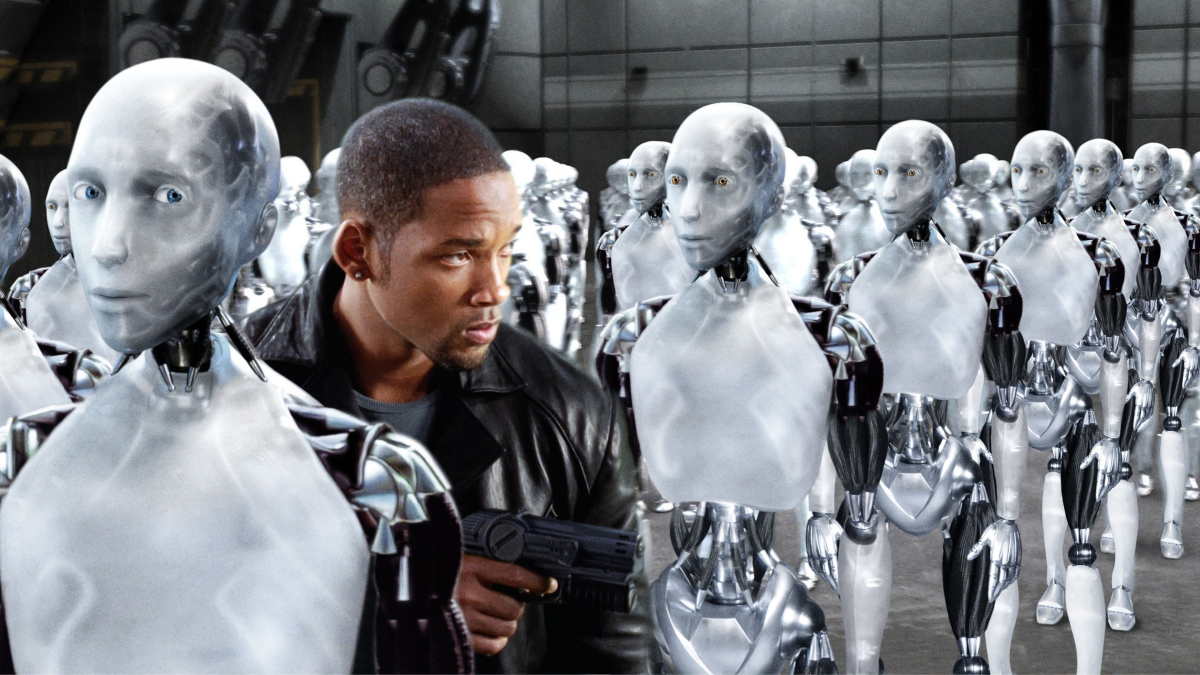
No shame. We all had Will Smith fever for about 15 years there. There was just something fun about watching him hit people, back before he started hitting people.
But man, were we too enthusiastic? Did we just sort of give him a blank check to be in whichever production was willing to put him in the coolest leather jacket? Was he the Dwayne Johnson of the ‘90s and ‘00s? The ultra-expensive celebrity truffle seasoning that we sprinkled on unspectacular projects to get people interested? Watching I, Robot in 2023, the answer feels like a solid “definitely.” While the special effects might have carried most of the weight 20 years back, all of the robots look like PooChi iPod accessories now. The script is a stone-cold drag, equal parts predictable and flavorless. There’s something smarter to explore in the original Isaac Asimov short stories, or at least something less heavy handed.
Timeline

It’s just the way things work. One concept hits big, and Hollywood squeezes it like it’s a cystic zit full of money. The MCU made bank and suddenly every studio wanted a shared universe. Barbie paid for any number of studio execs’ Mojo Dojo Casa Houses, and now we’re months removed from a tsunami of Mattel property adaptations.
Back in the ‘90s, the I.P. “it” girl of the moment was Michael Crichton’s bibliography, thanks to the writer’s Jurassic Park concept being met with some enthusiasm by basically everyone in the world. Crichton’s novels became worth their weight in prehistoric mosquitoes almost overnight, with hopeful studios dropping flop after flop with astonishing persistence. Congo, Sphere, The 13th Warrior, Rising Sun, and more hit the box office with the pluck and bounce of raw poultry.
At the tail end of the phenomenon was Timeline, based on Crichton’s time travel story of the same name. Despite a confusingly stacked cast and Richard Donner in the director’s seat, the movie took some super fun concepts and turned them into a deeply forgettable Hallmark-quality adventure.
Norbit
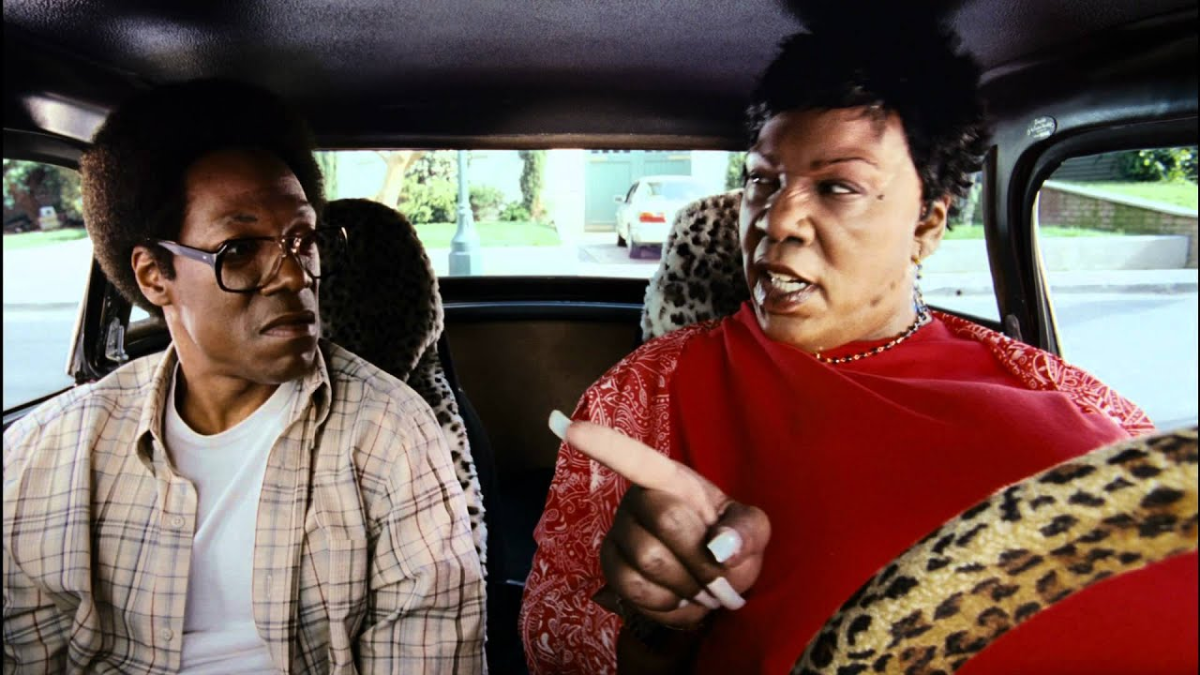
We’ve talked a lot today about the tragedy of missed potential, and there’s no better example of this than Norbit, a film which, to this day, practically begs to have its own cinematic universe. Audiences would go crazy for Norbit if a studio put enough money into it. The premise is so relatable – a guy marries a woman who’s mean and unattractive? That’s the next MCU, handed to whichever executive is brave enough to pick up the baton and run with it.
And another thing: As far as I can tell from my limited experience trying to pitch stuff, most studio execs don’t read past the first paragraph of any given proposal. That being the case, I feel safe now admitting that there’s nothing about Norbit worth saving. It’s a genuinely infuriating movie, and it’s entirely possible that the greatest sin man has committed against nature has been the addition of metric tons of plastic waste to the environment in the form of Norbit DVDs. Eons from now, archaeologists from whichever species picks up where we left off will find Norbit on Blu-ray in the electronics section of a buried Walmart and stop caring about why we went extinct. Watching Norbit feels like belt sanding your faith in humanity.
But if it shows up on enough lists of movies that people want to see rebooted, we might be able to get Sony to buy the rights and pour Morbius money into a remake. #Norbius2024

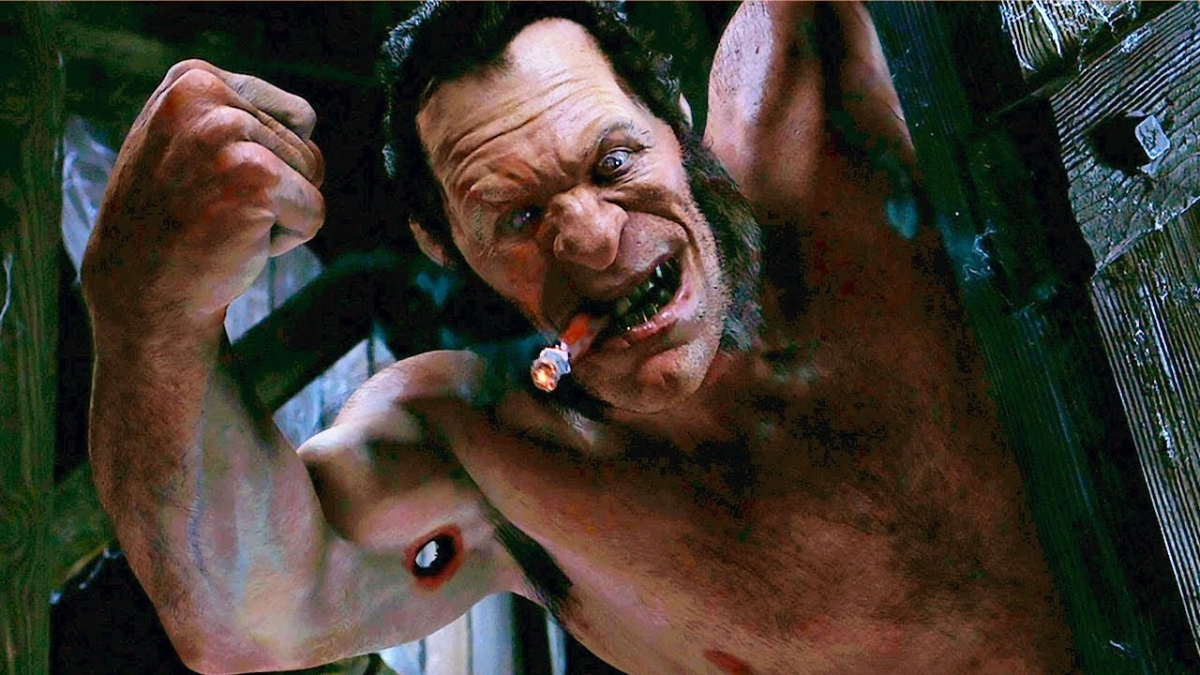









Published: Aug 29, 2023 04:44 pm